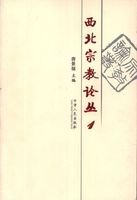There is this to be noticed in any case, that most of the limitations we have been speaking of are found in full work at the very time when villainage was treated as slavery in the books. One feature, perhaps the most important of all, is certainly not dependent on any progress of ideas, however complete the lord's power over the serf may have been, it was entirely bound up with the manorial organisation. As soon as the villain had got out of its boundaries he was regularly treated as a free man and protected in the enjoyment of liberty so long as his servile status had not been proved.* Such protection was a legal necessity, a necessary complement to the warranty offered by the state to its real free men. There could be no question of allowing the lord to seize on any person whom he thought fit to claim as his serf. And, again, if the political power inherent in the manor gave the lord A great privileges and immunities as to the people living under his sway, this same manorial power began to tell against him as soon as such people had got under the sway of lord B or within the privileged town C The dependant could be effectually coerced only if he got back to his unfree nest again or through the means of such kinsfolk as he had left in the unfree nest.* And so the settlement of disputed rights connected with status brings home forcibly two important positions: first the theory of personal subjection is modified in its legal application by influence in favour of liberty; and next this influence is not to be traced exclusively to moral and intellectual progress, but must be accounted for to a great extent by peculiarities in the political structure of feudalism.
One point remains to be investigated in the institution of villainage, namely modes in which a villain might become free. Ihave had occasion to notice the implied manumission which followed from a donation of land to a bondman and his heirs, which in process of time was extended to all contracts and concords between a lord and his serf. A villain was freed also, as is well known, by remaining for a year and a day on the privileged soil of a crown manor or a chartered town.* As to direct manumission, its usual mode was the grant of a charter by which the lord renounced all rights as to the person of his villain. Traces of other and more archaic customs may have survived in certain localities, but, if so, they were quite exceptional. Manumission is one of the few subjects touched by Glanville in the doctrine of villainage, and he is very particular as to its conditions and effects. He says that a serf cannot buy his freedom, because he has no money or goods of his own. His liberty may be bought by a third person however, and his lord may liberate him as to himself, but not as regards third persons. There seems to be a want of clearness in, if not some contradiction between these two last statements, because one does not see how manumission by a stranger could possibly be wider than that effected by the lord. Again, the whole position of a freed man who remains a serf as regards everybody but his lord is very difficult to realize, even if one does not take the later view into account, which is exactly the reverse, namely that a villain is free against everybody but his lord. I may be allowed to start a conjecture which will find some support in a later chapter, when we come to speak about the treatment of freedom and serfdom in manorial documents. It seems to me that Glanville has in mind liberation de facto from certain duties and customs, such as agricultural work for instance, or the payment of merchet.
Such liberation would not amount to raising the status of a villain, although it would put him on a very different footing as to his lord.* However this may be, if from Glanville's times we come down to Bracton and to his authorities, we shall find all requirements changed, but distinct traces of the former view still lingering in occasional decisions and practices. There are frequent cases of villains buying their freedom with their own money,* but the practice of selling them for manumission to a stranger is mentioned both in Bracton's Treatise* and in his Notebook. A decision of 1226 distinctly repeats Glanville's teaching that a man may liberate his serf as to himself and not as to others. The marginal note in the Notebook very appropriately protests against such a view, which is certainly quite inconsistent with later practice.* Such flagrant contradictions between authorities which are separated barely by some sixty or seventy years, and on points of primary importance too, can only tend to strengthen the inference previously drawn from other facts -- that the law on the subject was by no means square and settled even by the time of Bracton, but was in every respect in a state of transition.
NOTES:
1. Littleton, sect. 188.
2. Bracton, ff. 5, 193, b.
3. I need not say that there were very notable variations in the history of the Roman rule itself (cf for instance, Puchta, Institutionen, 211), but these do not concern us, as we are taking the Roman doctrine as broadly as it was taken by medieval lawyers.
4. Mater certa est. Gai. Inst. I. 82. 3 See Fitz. Abr. Villenage, pl. 5 (43 Edw. III): 'Ou il allege bastardise pur ceo qe si son auncestor fuit bastard il ne puit estre villein, sinon par connusance.' There was a special reason for turning the tables in favour of bastardy, which is hinted at in this case. The bastard's parents could not be produced against a bastard. He had no father, and his mother would be no proof against him because she was a woman [Fitz. Abr. Vill. 37 (13 Edw. I), Par ce qe la feme ne puit estre admise pur prove par lour fraylte et ausi cest qi est demaunde est pluiz digne person qe un feme]. It followed strictly that he could be a villain by confession, but not by birth. The fact is a good instance of the insoluble contradictions in which feudal law sometimes involved itself.















